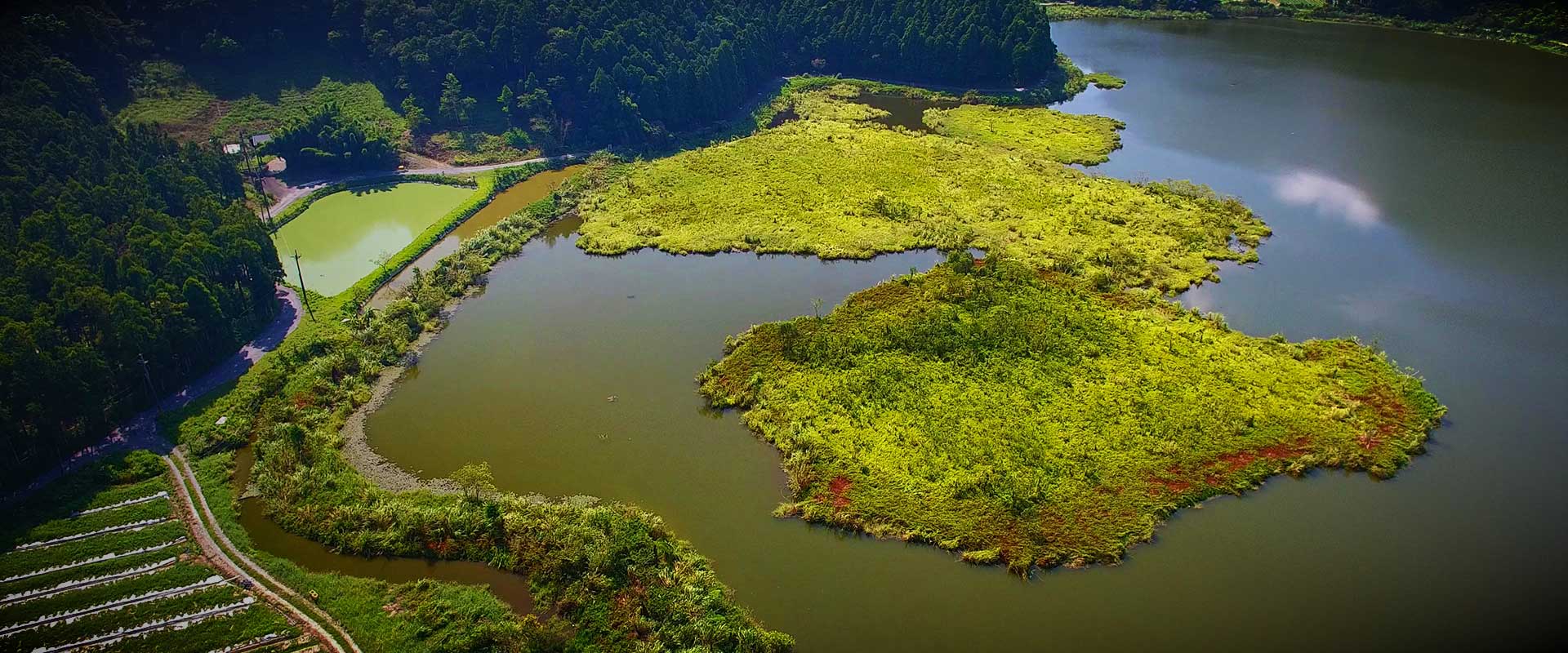
Working holidays refer to when people use their holidays to perform social services or environmental protection related volunteer work. During the process, these people can learn through practical actions and gain different experiences while enjoying their holiday. This is a new model for travel and leisure and is also a new type of volunteer service.
In last week’s program, we talked about how Shuanglianpi in Yilan was previously privately owned land. In the 1990s, the owner reorganized the land with an excavator, removed aquatic plants, and bred foreign species of fish, causing an extreme ecological crisis to convert Shuanglianpi into a fish pond. To help this situation, the Society of Wilderness, who established the Shuanglianpi Eco Classroom, implemented working holidays to conduct habitat restoration in Shuanglianpi. The society gathered several volunteers to hopefully one day restore Shuanglianpi to its former glory.
Director Huang Zhen-Fu of the Shuanglianpi Eco Classroom (Director A-fu) stated that Shuanglianpi Eco Classroom introduced three main types of working holidays: habitat restoration, native species restoration, and eco-friendly farming. Among these models, habitat restoration requires the most manpower and is the most important. Habitat restoration can be divided into two parts: slope gradient restoration and foreign species removal.
What is slope gradient restoration? In simple terms, this is changing the gradient of the banks of lakes and ponds. In the past, the banks of Shuanglianpi sloped gently. However, due to the work done on the embankments the environment has become unfavorable to aquatic plants and small animals. Therefore, the Shuanglianpi Eco Classroom conducted experiments to restore the gentle slopes of the banks and increase the surface area of the tidal zone between the higher and lower water levels, creating an environment more suitable for different species.
However, since Shuanglianpi has been designated as a protected area and slope gradient restoration has never been done, if the efforts fail, the overall damage must be limited to a restorable level. Therefore, the restoration work cannot employ large machinery and must be conducted manually with shovels and spades. In addition, the soft clay soil makes the work time consuming and increases the risk of slipping.
The results of the slope gradient restoration have been surprising. The aquatic plants and dragonflies, which disappeared for more than a decade, are slowly returning to Shuanglianpi. The Shuanglianpi Eco Classroom also discovered animal footprints and droppings. So, they installed an automatic camera and found that pangolins, civets, and crab-eating mongooses have also returned to Shuanglianpi, restoring the higher tiers of Shuanglianpi’s ecological pyramid.
Of course, in order to restore the numerous aquatic plants of Shuanglianpi the removal of foreign species is also absolutely necessary. Currently, the habitat restoration working holidays organized by the Shuanglianpi Eco Classroom is mainly focused on the removal of foreign plant species, including water lettuce and giant salvinia, and animals, such as the channeled applesnail.
Giant salvinia is an aquatic fern. The plant grows very fast and is very dominating. A researcher placed Taiwan’s native Salvinia natans with giant salvinia in the same incubator to compare their survival ability. In only ten weeks, the giant salvinia occupied the entire incubator, causing all of the Salvinia natans to die.
Removing giant salvinia is not easy. Volunteers must wear wetsuits and life jackets and take a boat to the deeper parts of the lake. They push the giant salvinia to the shore so that volunteers onshore can remove them. Many small plants are tangled in the bushes. Volunteers must remove them by hand bit by bit, which is very time consuming. Furthermore, in order to avoid the spores of the giant salvinia from getting stuck in the wetsuits and being brought to other bodies of water, the volunteers must scrub the wetsuits with a brush after they finish their work.
The removal of giant salvinia must be conducted periodically. However, because of the pandemic this year, the number of working holidays organized was reduced drastically. In the first half of the year, working holidays were almost never held, allowing the number of giant salvinias to return to the same level as the previous year. From this, we can see that the problem of foreign species is hard to handle. The most important thing is to reduce or stop their spread into the environment at the source.
Today’s episode takes you to Shuanglianpi and Director A-fu will talk about the conservation work for Taiwan’s national treasure level wetlands.
Podcast on demand



 中
中